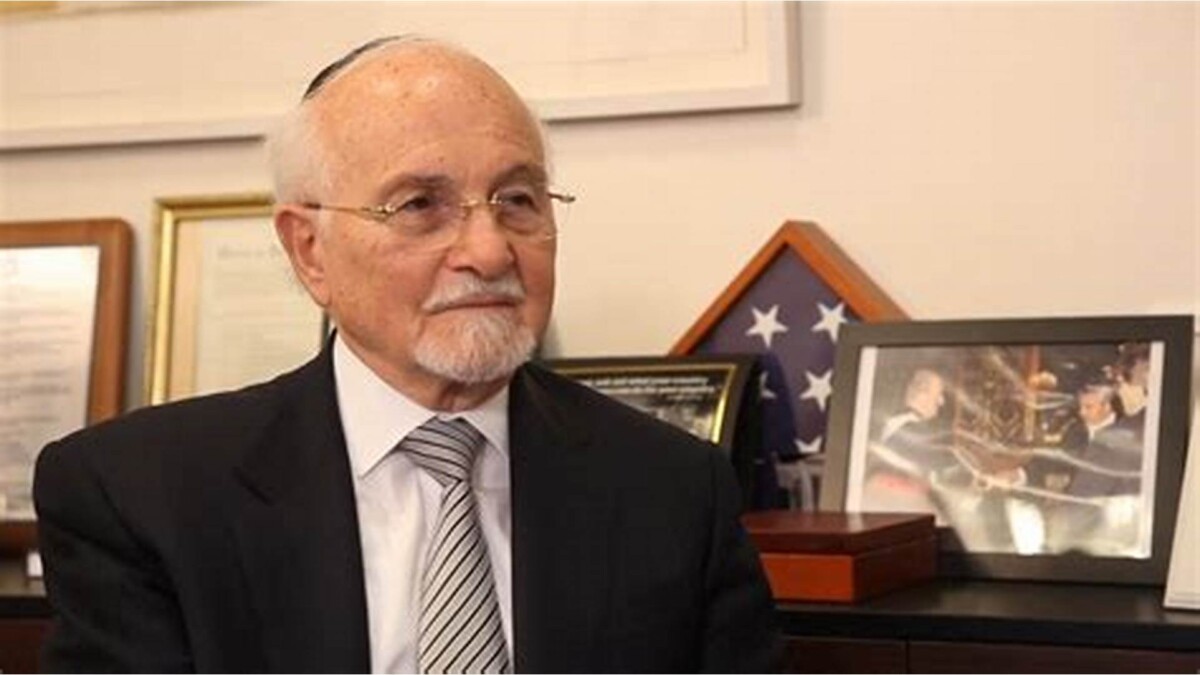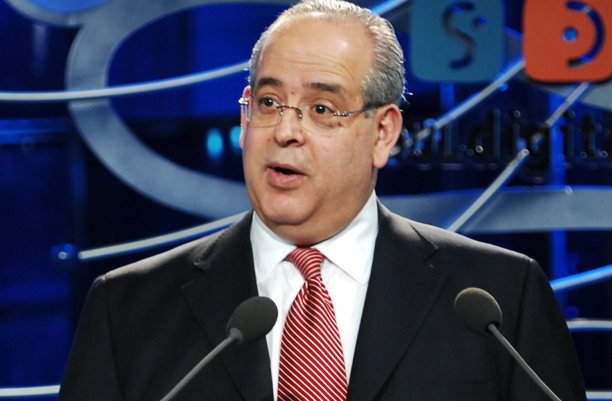In this article
- Introduction
- Perella Weinberg
- Perella Weinberg Insider Trading Case
- Insider Trading Investigation At Perella Weinberg Prompts Leave Of Absence – Reports
- People Involved In Perella Weinberg Insider Trading case
- Result Of Perella Weinberg Insider Trading Case
- Timeline
- Tragic Death Of Perella Weinberg Partners’ Banker Amid Insider Trading Probe
- Conclusion
- Frequently Asked Questions
Introduction
The Perella Weinberg insider trading case is one of the most noteworthy cases that has surfaced in the financial world in recent years. The case has received much media attention and has sparked much debate over the potential legal ramifications and implications of the situation. Allegations and accusations have been made that the investment firm and its employees have breached fiduciary duties to their clients through insider trading.
Ethical questions are at the heart of this controversy about how much discretion private institutions should be allowed to use to make profits, and also whether it is ever justifiable for one to take advantage of non-public information to generate profits for oneself or one’s firm. This article will explore the legal ramifications of the Perella Weinberg insider trading case and consider possible legal approaches, if any basis for prosecution is found.
Perella Weinberg
Perella Weinberg is an alternative asset manager/investment banking firm based in New York City. Founded in 2006 by former Goldman Sachs partners, Peter Weinberg, Joe Perella, and Peter Weingarten, the company has grown to become one of the top players in the alternative asset management and investment banking space.
The company’s services include Mergers and Acquisitions, Corporate Advisory, Private Equity, Investment Banking, and Credit Strategies. Perella Weinberg has a wide variety of clients, including many of the world’s largest corporations.
In addition to its transactional services, Perella Weinberg also provides a variety of strategic and consulting services. It includes capital allocation advice, operational and financial restructuring, and business strategy services. The company’s asset management arm offers a variety of different funds, including public equity, fixed income, and private equity strategies.
Due to their expertise and success, Perella Weinberg has achieved significant recognition and awards. The Financial Times named us Top 25 M&A Advisors for 2018 and 2016. Private Equity International awarded us the PEI Awards 2018 and 2017 for LP Advisory Firm of the Year. And they also recognized us as the Financial Times Investment Banking/M&A Team.
Perella Weinberg Insider Trading Case

In August of 2018, Perella Weinberg Partners LP (PWP) became involved in a high-profile corporate insider trading case. The Securities and Exchange Commission (SEC) accused PWP of using non-public information gained from a 2011 consulting agreement with a corporate insider to attempt to generate millions of dollars in unlawful profits from the purchase of stock options.
The SEC investigated whether PWP had acted on information that it had obtained while consulting for a publicly traded pharmaceutical company. According to their findings, PWP allegedly used confidential information from the client to purchase exchange-traded fund options in the days ahead of a surprise positive earnings announcement. This allowed it to capture an immense financial gain.
Perella Weinberg Services LP (PWP Services), the corporate entity affiliated with PWP, agreed to settle the SEC’s action. As part of the settlement, PWP Services paid a civil money penalty of $5,000,000, nearly $1.3 million in disgorgement, plus prejudgment interest of approximately $169,000. In addition, the SEC suspended PWP Services from appearing or practicing before the Commission as an investment adviser for one year. All of the other Directors suspended Steven Root for three months.
Insider Trading Investigation At Perella Weinberg Prompts Leave Of Absence – Reports
Reuters has reported that PWP.O has placed a London-based employee, examined as a result of an insider trading case in Germany, on leave according to two sources.
German police announced that they had begun investigating five people, one of whom was already in detention, for allegedly making millions of euros off of merger and acquisition deals set to go through during 2017 and 2021.
The firm is aiding German criminal justice authorities in their inquiry,” Perella noted in a statement. There is no misconduct on the side of the company, and the company is not under investigation.
The two individuals who spoke to Reuters did so anonymously.The other of them claimed that British authorities had raided the London headquarters of Perella this week.
Without providing specifics, a representative for London’s Metropolitan Constabulary confirmed on that officers affiliated with the Met’s Foreign Assistance Unit had executed orders at address in Westminster for the benefit of German authorities.
A prosecutor’s office spokesman in Frankfurt had no comment. Prosecutors and BaFin, Germany’s banking regulator, claimed they’d been looking into the matter since November 2021 and had conducted various searches in Germany, the United Kingdom, and Austria just this week alone. Someone is currently examining the confiscated evidence.
Authorities claimed a two-digit multimillion euro profit from the purported dealings. All of the accused and the companies involved in the transactions are from Germany.
Bloomberg originally reported the hunt in London, while Manager Magazin published the story about the Perella employee.
People Involved In Perella Weinberg Insider Trading case
Stephen Sadove
Former Chairman and Chief Executive Officer of Macy’s, Inc., Stephen Sadove. His help reportedly manipulated the shares of Perella Weinberg Partnership . He also helped establish the New York-based investment bank Perella Weinberg and served as its first managing partner.
Patrick D. Foye
Former Perella Weinberg Executive Vice Chairman and COO Patrick D. Foye. Mr. Foye was told important private data on the bank’s restructuring. And provided this knowledge to select individuals who then engaged in insider trading based on it.
Jordan Goldstein
Former Perella Weinberg General Counsel and current partner at the US business Skadden, Arps, Slate, Mcnamara & Flom LLP, Jordan Goldstein has an impressive legal background. Suspicion falls on Mr. Goldstein for participating in an illegal insider trading scam.
Steven Boyer
Formerly of Perella Weinberg, Steven Boyer was CIO. Others suspect Mr. Boyers of illegally communicating material non-public information about the bank’s restructuring which they used to engage in insider trading.
Francis H. Tanney
The former CFO of Perella Weinberg was Francis H. Tanney. Somebody suspects Him to have passed along inside knowledge of the bank’s restructuring, which others have allegedly engaged in criminal insider trading.
Douglas B. Sanborn
Former Soros Investment Management LLC associate Douglas B. The authorities are investigating Pinkerton for allegedly profiting from insider knowledge of the Perella Weinberg bank restructuring.
Stephen H. Furs
Former Soros Fund Managers LLC partner Stephen H. Perella Weinberg Bank has investigated Furs for allegedly profiting from insider knowledge of its restructuring.
Christopher B. White
Ex-Soros Fund Management LLC partner Christopher B. White is being sued for allegedly trading on inside knowledge of the Perella Weinberg reorganization in order to profit.
Yuska Widyawan
A third party is allegedly investigating Yuska Widyawan, a former Goldman Sachs analyst, for receiving inside knowledge about the Perella Weinberg reorganization. He allegedly used this information to his advantage by buying and selling bank securities.
Result Of Perella Weinberg Insider Trading Case

One high-profile case of trading by insiders in the US is the one involving Perella Weinberg. From 2009 through 2016, the United States Department of Justice conducted the investigation and prosecution of this case. And it seems to center around a securities fraud plot involving clients of a Hedges Investments. This is done when someone uses private information to make money in the stock market.
The Securities and Exchange Commission, known as the SEC, began looking into the case in 2009 after receiving a complaint that the Perella Weinberg investment firm business had disclosed important, nonpublic information to investors. The SEC continues to investigate the situation and take legal action against the alleged conspirators. The SEC imposed a civil penalty of more than $13 million on Perella Weinberg in a settlement deal reached in 2011.
The Ministry of Justice (DOJ) launched its own investigation after the settlement and has already begun prosecuting those responsible. Different people and companies accused of insider trading filed several separate complaints and legal actions simultaneously.
The US Department of Justice needed to show that the suspects had traded securities in order to demonstrate insider trading. Individuals either directly benefited from the use of the material, nonpublic knowledge or tipped those who did so. The United States Department of Justice used papers, emails, text messages, wiretapped phone calls, and testimony from eyewitnesses to establish guilt. We talk to important people in the industry and connect it to trading.
The Department Of Justice Combined The Evidence
The evidence found during the course of the investigation showed that a number of Perella Weinberg customers had traded in securities based on material and nonpublic information. The information was provided by a group of trusted contacts within the firm. This included senior staff and other customers who held positions of trust within the firm.
The information is typically provided in two ways. Either directly from the contacts themselves or through newsletters and emails, they send out to other customers containing material and nonpublic information. Customers then used the information to purchase securities prior to their public release, resulting in large trading profits.
The Department of Justice combined the evidence gathered with witness testimonies. This is in order to build a strong case against the alleged participants in the insider trading scheme. Some accused several people and businesses of participating in criminal operations.
In 2016, after a long and complex investigation, the Department of Justice entered a plea agreement. It is with the remaining individuals and entities involved in the case. The court sentenced the individuals to prison terms ranging from one to three years and required the entities to pay fines and other penalties.
Timeline
December 2004
Perella Weinberg, an international financial services firm, is founded.
April 2006
The Securities and Exchange Commission (SEC) launch an investigation into allegations of insider trading at Perella Weinberg.
September 2007
The SEC files civil charges against five individuals and one company, accusing them of insider trading involving Perella Weinberg.
November 2007
The SEC and Perella Weinberg reach a settlement regarding the civil charges. Perella Weinberg agrees to pay a fine of $1.2 million and has to comply with certain voluntary measures to prevent similar activities from occurring in the future.
February 2010
The U.S. Department of Justice files criminal charges against five individuals, accusing them of insider trading involving Perella Weinberg.
July 2010
The federal criminal court has indicted five individuals for the charges related to the Perella Weinberg case.
November 2012
Three of the individuals plead guilty to criminal insider trading charges.
December 2013
The fourth individual is sentenced to 18 months in federal prison for his part in the Perella Weinberg insider trading case.
September 2017
The fifth individual is sentenced to 10 years in federal prison for his part in the Perella Weinberg case.
Tragic Death Of Perella Weinberg Partners’ Banker Amid Insider Trading Probe
Shocking Turn of Events
In a startling development, a banker employed by Perella Weinberg Partners, based in the UK, was found dead. This discovery occurred just days after the investment bank had placed him on leave. The decision to put him on leave was in response to a raid on the bank’s London office as part of an ongoing investigation into alleged insider trading.
Insider Trading Suspicions
The banker had come under suspicion from German law enforcement agencies for allegedly sharing confidential and sensitive information concerning upcoming mergers and acquisitions. This information, it is believed, was subsequently used by four German individuals to conduct insider trading, raising significant ethical and legal concerns.
Perella Weinberg Partners’ Statement
Perella Weinberg Partners, in response to the tragic loss of their colleague, expressed deep sorrow and extended heartfelt condolences to the banker’s family, friends, and loved ones. The investment bank has emphasized its commitment to supporting its employees during this challenging and distressing period. Local authorities have yet to release an official autopsy report, but there is currently no evidence of foul play surrounding the banker’s death. These events have added a sad and tragic dimension to an already complex investigation into insider trading, casting a pall over the financial world and raising questions about the far-reaching implications of such unethical financial practices.
Conclusion
The Perella Weinberg Insider Trading Case has shown that there are serious legal ramifications to trading based on material nonpublic information. The SEC penalties imposed, even though many of the defendants were not convicted of criminal charges, should still serve as a warning to potential violators. The case also demonstrates the importance of having proper policies and procedures in place to ensure compliance with the law. Despite such safeguards, everyone should remember that insider trading is illegal and carries significant penalties.
Frequently Asked Questions
1. What is the Perella Weinberg insider trading case?
The US Securities and Exchange Commission brought a civil lawsuit against Perella Weinberg and four of its former employees over accusations of insider trading in the Perella Weinberg insider trading case. The SEC alleged that the individuals had misused material nonpublic information about a major M&A transaction by trading in the securities of the companies involved.
2. What are the legal ramifications of the Perella Weinberg case?
The legal ramifications of the Perella Weinberg case depend on the outcome of the case, but generally boiled down to consent imposes lifetime bans from the securities industry, disgorgement of profits and payment of civil penalties to the SEC.
3. What kind of penalties were imposed on the Perella Weinberg employees?
The former Perella Weinberg employees received penalties ranging from a $32,000 penalty for a months-long trading ban to a multi-million dollar fine.
4. Has anyone been criminally charged in the Perella Weinberg case?
No one has been criminally charged as part of the Perella Weinberg case.
5. Who is responsible for enforcing insider trading laws?
The US Securities and Exchange Commission (SEC) is responsible for enforcing insider trading laws. The SEC can conduct investigations and bring civil actions against individuals or companies for violations of federal securities laws.






